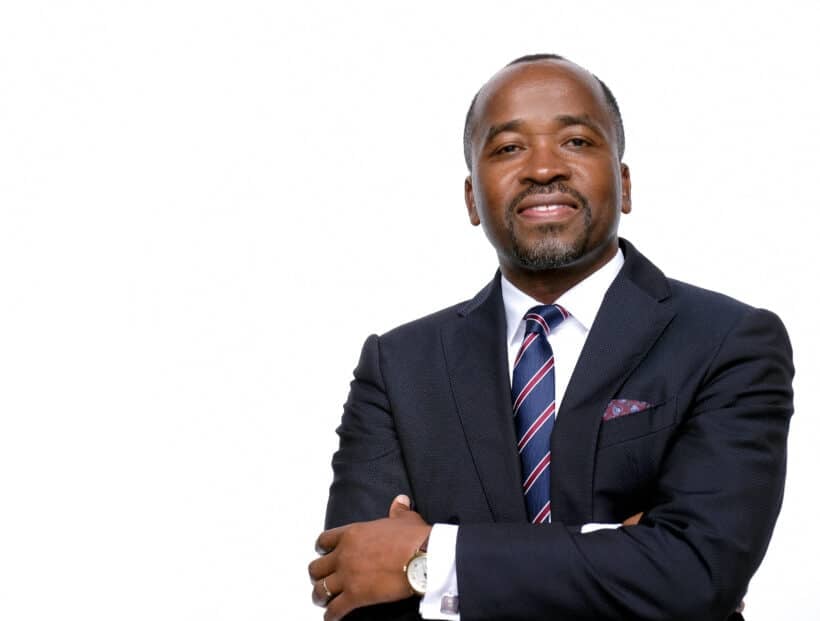
When it comes to Africa’s digital transformation, access isn’t just about connectivity; it’s the gateway to opportunity, says Hardy Pemhiwa, President and Group CEO of Cassava Technologies.
We at Cassava Technologies often talk about our vision of a digitally connected future in which no African is left behind. On a continent where more than half of the population reside-in rural areas, this doesn’t mean convincing these people to migrate to urban areas where connectivity and internet access are mostly readily available; it means taking connectivity and access to the areas that were previously excluded.
Africa’s Agenda 2063 sets out a compelling 50-year vision for the continent, that of a unified, prosperous, and peaceful Africa, driven by its citizens and playing a role on the global stage. And the key to unlocking this vision lies in the digital transformation of our continent.
Digital transformation in Africa is more than just laying kilometres of fibre to connect communities. It also means providing opportunities to every African, regardless of their location, giving them the tools and resources they need to thrive in the digital age. Significant progress has already been made, with the overall number of internet users on the continent sitting at close to 646 million, mostly through these mobile devices. However, we must ensure that this access translates into meaningful opportunities for education, healthcare, agriculture, and economic empowerment in general.
Education as a bridge to the global community
For instance, the integration of internet connectivity in education has the potential to transform learning experiences, making education more accessible and inclusive, across the continent. It brings with it the ability to access information, e-learning and online courses, supports professional development for educators, and connects African learners to the global economy. Recognising this, we’ve embarked on a mission to map schools across Africa, identifying their proximity to fibre broadband networks and the resources needed to connect them. And we’ve partnered with organisations like UNICEF, Microsoft, and Google, because this is a challenge that requires collaboration to solve. To date, of the 22,000 schools mapped, we’ve already connected 5,000 to high-speed internet, opening a world of educational opportunities for millions of children.
Transforming agriculture using technology
Another example is the transformative potential of technology in Africa’s agricultural sector, which contributes 35% to the continent’s GDP and employs a sizeable portion of the population. From mobile platforms that deliver real-time information that will help farmers increase their yields and improve their livelihoods, to technology that can help address post-harvest losses by deploying sensors and IoT devices to monitor storage conditions and transport routes, the potential is astounding.
Bringing e-healthcare to rural communities
Given the far-flung nature of most rural communities, access to healthcare is a well-documented challenge. Internet connectivity in these areas means that people are no longer compelled to journey to urban centres to receive the medical advice they need. Again, this access should be used to create meaningful opportunities that can transform Africa’s healthcare landscape. This ranges from integrating digital tools into healthcare systems and investing in digital literacy, to providing solutions like telemedicine, digitised health records, online health resources, and mobile health applications.
The importance of empowering rural communities
It’s clear that infrastructure, education, and healthcare are the pillars upon which a prosperous Africa will be built. This leads to another important point – a prosperous Africa is, fundamentally, a prosperous rural Africa. Empowering rural communities with connectivity is essential for achieving a balanced and inclusive digital transformation. Bringing opportunities directly to people in these areas reduces the need for mass migration to urban centres, which in turn often leads to overcrowded cities and strained resources. Such opportunities extend from access to online education and telemedicine to participation in e-commerce and digital entrepreneurship.
Partnerships are key to reducing costs
The cost of access remains a critical barrier to the digital transformation of Africa, particularly in bringing last-mile access to previously excluded communities. In fact, Statista reports that the average cost of a gigabyte of data in Africa is among the highest in the world, which limits individuals and small businesses alike in taking full advantage of digital technologies. To help address this, we’re working on multiple fronts, including partnerships with global tech giants like Google and Microsoft to reduce the cost of data and cloud services. Partnerships with governments and regulators are also key to address policy reforms and the necessary regulation.
Africa cannot afford to allow the digital revolution to pass us by. The demographics of our continent, with a burgeoning youth population, make it imperative that we succeed. As the largest consumers of digital technology, the empowerment of our youth is crucial for the sustainability of our businesses and the continent’s future.
The Great African Digital Transformation is a journey that calls for intentionality, collaboration, and a relentless focus on creating opportunities. It’s about building a digitally connected future that’s inclusive by design, and that leaves no African behind. That’s our vision at Cassava Technologies.

